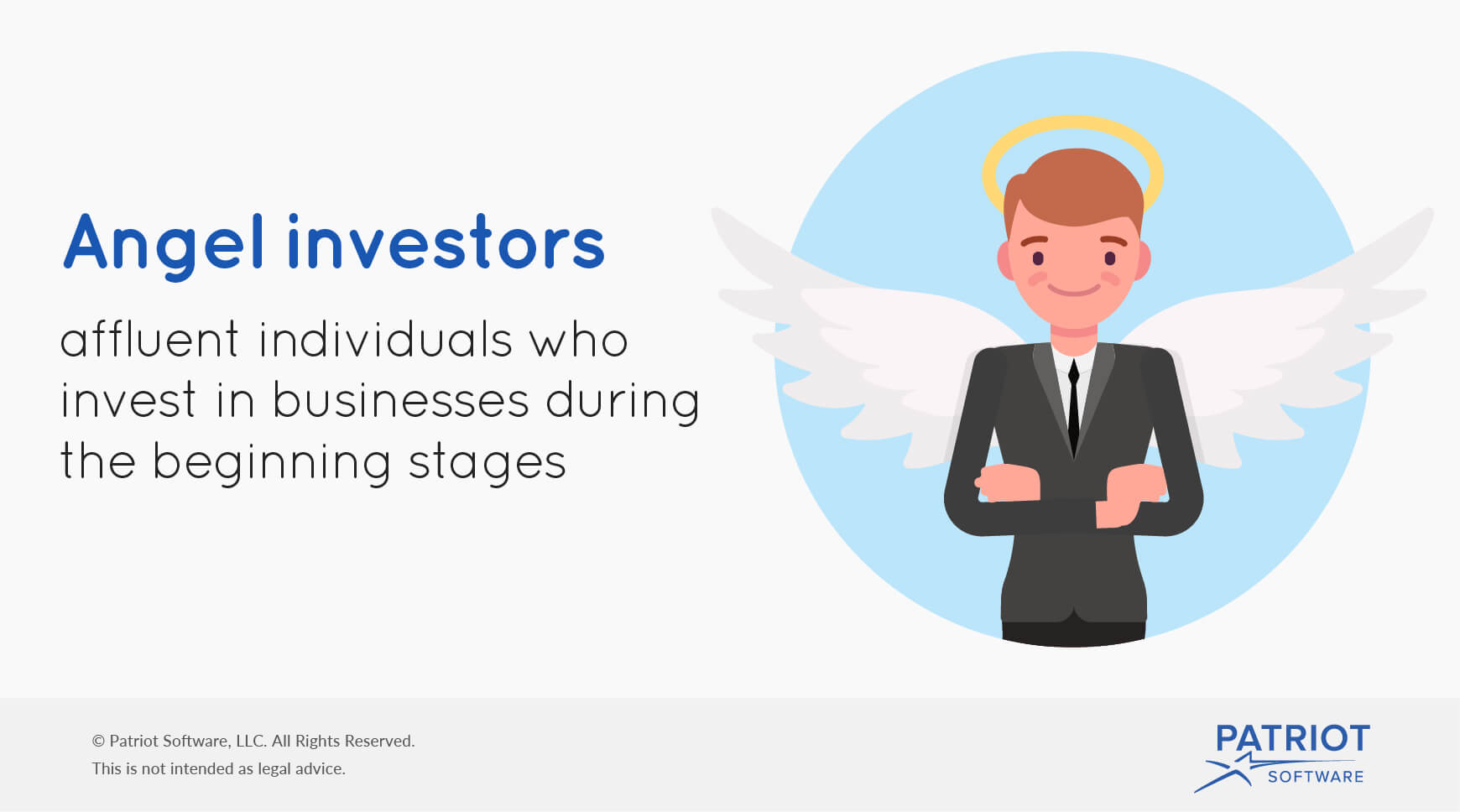Do you need some extra funding for your business? If your business is still in the early stages, it might be difficult to get outside funding. Banks and other traditional lenders might be wary of giving you a loan.
Even if you’re struggling to get money from a traditional lender, you might get funding help from an angel investor.
What is an angel investor?
Angel investors are affluent individuals who invest in businesses during the beginning stages. They tend to focus on brand new businesses and established businesses that are still quite small. Small business angel investors are focused on helping businesses start and grow.
Angel investors must be accredited investors according to SEC standards. This means they must have a minimum net worth of $1 million and have an annual income of at least $200,000.
These investors give their own money, not money that has been pooled from a large group of people. Angel investors might give a one-time payment. Or, they might give ongoing funds as they see real business growth.
Of course, like any investor, angel investors want something in return for giving up their money. Typically, you will have to give up some owner’s equity in exchange for the money.
If your business fails, the angel investor loses their investment. They will often want some sort of small business exit strategy to be part of your agreement so they can salvage some of their investment if your business fails.
Angel investors are also sometimes called informal investors, business angels, private investors, and seed investors.

What are the benefits of using angel investors for small business?
Small businesses that have some revenue but can’t get funding from a traditional investor might have better luck with an angel investor. Also, angel investors typically offer terms that are more favorable for your business than what other lenders will give you.
Many times, your angel investors will mentor you. They invested their money in your business, so they want to see it succeed. The investor probably has knowledge about your niche and how to run a business, so they can share that knowledge with you.
Angel investors often have valuable contacts that can help your business. They might be able to connect you with potential customers, employees, and other investors. They might also be able to help you meet and get better terms with lawyers, accountants, and banks.
What are the disadvantages of using an angel investor?
It might take longer to get funding through an angel investor than through other means. You and the investor will go through a process of courting each other to make sure you are good matches for each other.
As part of the angel funding terms, you might lose some control of your business. The investor might gain equity, voting power, or some other type of control. If you aren’t willing to give up part of your business or your control over it, seeking funds from an angel investor might not be the best option for you.
How do you find an angel investor?
You can probably walk into any bank and easily apply for a business loan. But, learning how to find private investors who are interested in your business will take some more effort.
Many business owners ask family and friends who qualify as angel investors for help. They might be more lenient and more willing to help than other angel investors.
Talk to other business owners and your local chamber of commerce. They might know of local angel investors who work with businesses in your industry or geographic area.
Also, check out local angel groups. Many angel investors join angel groups so they can more easily find opportunities to invest their money. You might also find luck with online angel communities.
What do small business angel investors want to see?
When you meet with angel investors, they will want to see a lot of information about your business. You will have to sell them on investing in your business. You must show that you are competent and your business has the potential for growth.
When you first meet an angel investor, you will likely need to give an investment pitch. In your pitch, you need to tell the investor why your business is a good choice for their investment.
If the investor is interested in your business after your pitch, they will likely ask you a lot of follow-up questions. Get the following documents to prepare and to show as evidence during the meeting:
- Your business plan
- The results of your market analysis
- Current and past financial statements
- Financial projections
- Marketing plans
- Records of early adopters or customer growth
You might also want to bring examples of your products or services to show the investor.
You should tell the investor how much money you are seeking. Tell the investor what they will get out of investing in your business. You should also mention how much money you have invested, if you are looking for other sources of funding, and how you plan to use the money you raise.
You can use accounting software to help you prepare for your investor meeting. Use the software to create financial statements and view your past expenses. When you do get funding from an investor, you can record it in your accounting software to easily keep track of the money. Sign up for a free trial of Patriot’s accounting software for small business to get ready for investor meetings.
